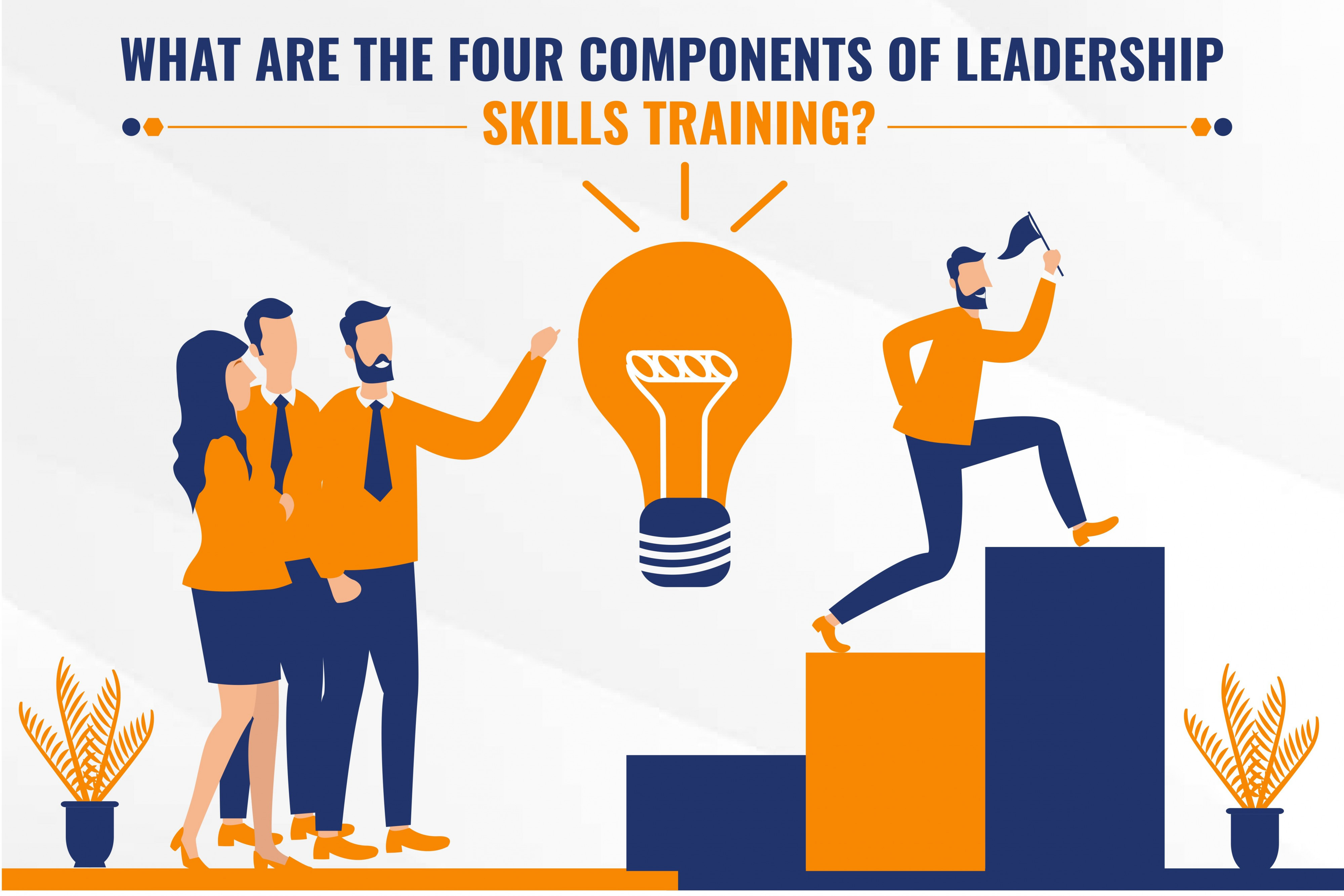
What Are The Four Components Of Leadership Skills Training?
Leadership skills are the cornerstone of any successful organization. Without effective leadership, businesses, and teams can falter. Leadership Skills Training is an essential aspect of developing these skills. But what exactly is training for leadership, and what does it entail? Whether you're a seasoned manager or just starting in your career, understanding the importance of effective leadership is essential for success. In this article, we will dive into the world of training and explore the four core components that are essential for developing strong leadership skills. So, let's get started and discover the benefits and how they can transform your leadership abilities.
Explore the 4 Key Components of Leadership Skills Training
Leadership Skills Training is composed of four key components that work together to develop and enhance a leader's abilities.
1. Self-Awareness and Emotional Intelligence
This focuses on developing self-awareness and emotional intelligence. This involves understanding one's own emotions and how they affect others in the workplace. By becoming more self-aware, leaders can identify their strengths and weaknesses and work on improving their communication and interpersonal skills. Emotional intelligence enables leaders to connect with their team members on a deeper level, which can lead to increased motivation, productivity, and overall job satisfaction. Effective leadership requires a high level of emotional intelligence, which can be developed through targeted training and practice.
Leaders who possess self-awareness and emotional intelligence also tend to be more adaptable and flexible in their management style. They are able to recognize the needs of their team members and adjust their approach accordingly. This can lead to a more positive and supportive work environment, which can in turn increase employee retention and overall team performance. Self-awareness and emotional intelligence can also help leaders navigate difficult situations and conflicts in a more effective and constructive manner, leading to better outcomes for all parties involved. By investing in self-awareness and emotional intelligence training, leaders can improve their relationships with their team members and ultimately drive better results for their organization.
2. Effective Communication Skills
The second component of Leadership Training focuses on developing effective communication skills. Communication is a critical aspect of leadership, as it is necessary for conveying ideas, setting expectations, providing feedback, and building relationships with team members. Effective communication requires not only the ability to articulate ideas clearly and concisely but also to listen actively and respond appropriately to others. Leaders who possess strong communication skills are able to build trust and respect with their team members, which can lead to increased engagement and motivation.
In this training, participants learn various communication techniques such as active listening, providing constructive feedback, and resolving conflicts. They also learn how to tailor their communication style to different situations and individuals, such as adapting to different personality types or cultural backgrounds. Effective communication is a skill that can be developed through practice and feedback, and leaders who invest in honing their communication skills tend to be more successful in leading their teams toward achieving organizational goals.
3. Strategic Thinking and Decision Making
The third component of Leadership Training focuses on developing strategic thinking and decision-making skills. Leaders are often required to make critical decisions that can have a significant impact on their organization's success. Therefore, it is essential that they possess the ability to think strategically and make informed decisions based on data, analysis, and stakeholder input.
In Leadership Skills Training, participants learn how to assess complex situations, identify potential risks and opportunities, and develop and evaluate alternative solutions. They also learn how to gather and analyze data, including financial, operational, and market data, to inform their decision-making.
Strategic thinking and decision-making also involve considering the needs and perspectives of various stakeholders, such as employees, customers, shareholders, and the community. Leaders who take a holistic approach to decision-making and consider the long-term implications of their decisions tend to be more successful in achieving their organization's goals.
They can also anticipate future trends and proactively develop strategies to address them, rather than simply reacting to changes as they occur. This can help organizations stay ahead of the curve and remain competitive in their industry.
4. Change Management
The fourth one of Leadership Training is change management. Change is inevitable in any organization, and leaders who are skilled in managing change are able to navigate it more effectively. Change management skills include the ability to communicate changes effectively, manage resistance, and create a culture of continuous improvement. Change management training may include techniques for identifying the need for change, developing a change management plan, communicating changes to stakeholders, and managing resistance to change.
Participants may also learn how to evaluate the effectiveness of change initiatives and make adjustments as needed. Change management is a critical skill for leaders who want to lead their organization through periods of growth, transition, or uncertainty. By effectively managing change, leaders can minimize disruptions and ensure that their organization is able to adapt and thrive in a rapidly changing environment.
Final Words
Leadership Training Programs are essential for individuals who want to become effective leaders in their organization. By developing skills such as communication, emotional intelligence, strategic thinking, and change management, leaders can create a positive work environment, motivate their team, and drive growth and success. With the right training and support, individuals can develop the skills they need to become confident, capable leaders who can navigate the challenges and opportunities of the modern business world.
